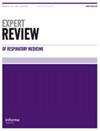新冠肺炎患者需要多学科康复方法,以解决持续的症状特征并恢复COVID前的生活质量
IF 2.9
3区 医学
Q2 RESPIRATORY SYSTEM
引用次数: 11
摘要
摘要背景长期新冠肺炎的诊断很突出,我们必须关注那些经历衰弱和长期症状的人。为了建立患者路径,我们必须考虑持续新冠肺炎的社会和经济影响。因此,我们试图确定新冠肺炎感染后影响生活质量(QoL)的相关领域。研究方法三百八十一名参与者完成了一项基于网络的调查(83%为女性,17%为男性),包括7个部分的70个问题(人口统计学、新冠肺炎症状、生活质量、睡眠质量、呼吸困难、身体活动和心理健康)。平均年龄、身高、体重和体重指数分别为42±12岁、167.6±10.4 cm、81.2±22.2 kg和29.1±8.4 kg/m2。结果参与者的健康状况因新冠肺炎症状而下降(“健康状况良好”至“健康状况不佳”[P<0.001])。工作的调查对象报告了进行中等(83%)和剧烈(79%)工作相关活动的持续问题。结论新冠肺炎患者报告参与日常生活相关活动(包括就业活动)的能力下降。定制的新冠肺炎支持途径必须考虑多学科方法,以解决患者的整体需求,恢复大流行前的生活质量,并解决经验丰富的健康和福祉挑战。简明语言总结:长期新冠肺炎的长期影响对日常活动和生活方式产生了巨大影响。开发定制的支持途径来支持患者,必须考虑到身体和心理因素,以充分恢复新冠肺炎前的生活质量,并解决更广泛的社会和经济影响,尤其是对那些处于工作年龄的人。本文章由计算机程序翻译,如有差异,请以英文原文为准。
COVID-19 patients require multi-disciplinary rehabilitation approaches to address persisting symptom profiles and restore pre-COVID quality of life
ABSTRACT Background Long-COVID diagnosis is prominent, and our attention must support those experiencing debilitating and long-standing symptoms. To establish patient pathways, we must consider the societal and economic impacts of sustained COVID-19. Accordingly, we sought to determine the pertinent areas impacting quality of life (QoL) following a COVID-19 infection. Research methods Three hundred and eighty-one participants completed a web-based survey (83% female, 17% male) consisting of 70 questions across 7 sections (demographics, COVID-19 symptoms; QoL; sleep quality; breathlessness; physical activity and mental health). Mean age, height, body mass and body mass index (BMI) were 42 ± 12 years, 167.6 ± 10.4 cm, 81.2 ± 22.2 kg, and 29.1 ± 8.4 kg.m2, respectively. Results Participant health was reduced because of COVID-19 symptoms (‘Good health’ to ‘Poor health’ [P < 0.001]). Survey respondents who work reported ongoing issues with performing moderate (83%) and vigorous (79%) work-related activities. Conclusions COVID-19 patients report reduced capacity to participate in activities associated with daily life, including employment activities. Bespoke COVID-19 support pathways must consider multi-disciplinary approaches that address the holistic needs of patients to restore pre-pandemic quality of life and address experienced health and wellbeing challenges. Plain Language Summary: The long-term impact of long-COVID has a dramatic impact upon daily activities and lifestyle. The development of bespoke support pathways to support patients must address the physical and psychological considerations to adequately restore pre-COVID quality of life and address broader societal and economic implications, especially for those that are of working age.
求助全文
通过发布文献求助,成功后即可免费获取论文全文。
去求助
来源期刊

Expert Review of Respiratory Medicine
RESPIRATORY SYSTEM-
CiteScore
6.80
自引率
2.60%
发文量
90
期刊介绍:
Coverage will include the following key areas:
- Prospects for new and emerging therapeutics
- Epidemiology of disease
- Preventive strategies
- All aspects of COPD, from patient self-management to systemic effects of the disease and comorbidities
- Improved diagnostic methods, including imaging techniques, biomarkers and physiological tests.
- Advances in the treatment of respiratory infections and drug resistance issues
- Occupational and environmental factors
- Progress in smoking intervention and cessation methods
- Disease and treatment issues for defined populations, such as children and the elderly
- Respiratory intensive and critical care
- Updates on the status and advances of specific disease areas, including asthma, HIV/AIDS-related disease, cystic fibrosis, COPD and sleep-disordered breathing morbidity
 求助内容:
求助内容: 应助结果提醒方式:
应助结果提醒方式:


